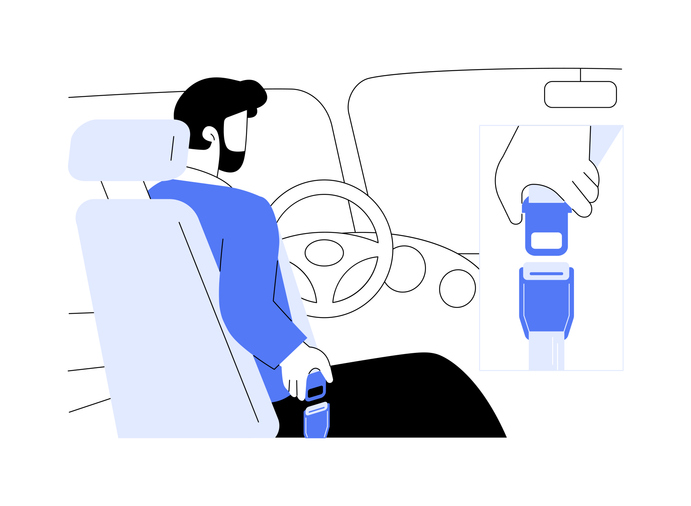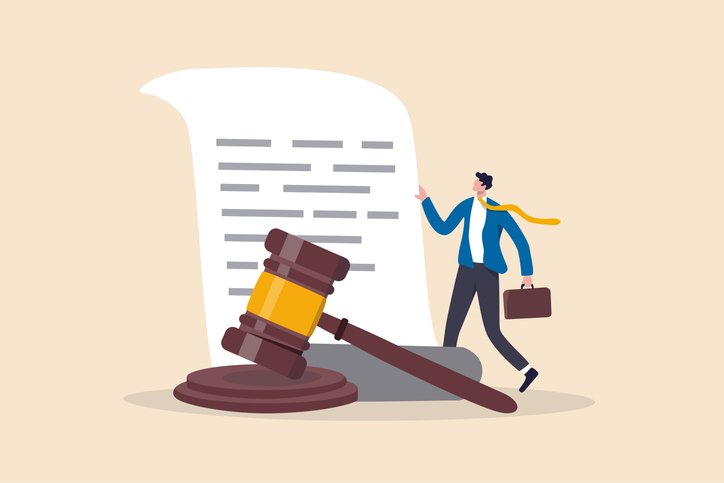What Is the Lemon Law?

California’s lemon law protects consumers who buy or lease new or used vehicles that turn out to be defective. Under this law, manufacturers must repair, replace, or refund the purchase price of vehicles if they have significant problems that impair their use, value, or safety. To be considered a lemon, a vehicle must have a substantial defect covered by the manufacturer’s warranty that persists after a reasonable number of repair attempts.
The law applies to cars, trucks, SUVs, motorcycles, and other vehicles used primarily for personal or family purposes. If a vehicle is in the shop for more than 30 days or has a defect that remains unfixed after several attempts, it might qualify as a lemon. If a consumer determines their car is a lemon, the manufacturer must either replace the vehicle or refund the purchase price, including costs like taxes and registration fees. Consumers have the right to choose refunds instead of replacements.
California’s lemon law aims to protect consumers from faulty vehicles and hold manufacturers accountable for their products. If you believe your vehicle might qualify as a lemon, you can consult a lemon law attorney to learn more about your options.
What Types of Vehicles Are Covered by the Lemon Law?

California’s lemon law covers a wide range of vehicles to protect consumers from defective purchases. This law aims to ensure that manufacturers take responsibility for their products and provide remedies for consumers facing significant issues with their vehicles.
Cars
The lemon law applies to new and used cars with manufacturer warranties. If your car has a substantial defect affecting its use, value, or safety, and the issue persists after a reasonable number of repair attempts, the manufacturer must repair, replace, or refund it.
Motorcycles
Motorcycles also fall under California’s lemon law. If your motorcycle has a serious defect that impairs its functionality or safety, and the manufacturer fails to fix it after multiple attempts, you have the right to demand a replacement or a refund.
Boats
The lemon law also applies to boats. Whether you use your boat for recreation or a small business, you can seek protection under this law if it has a significant defect. If the manufacturer can’t resolve the issue after several repair attempts, you can request a replacement or a refund.
Recreational Vehicles
Recreational vehicles (RVs) are covered by the lemon law too. If your RV has a defect that affects its livability, safety, or value, and the manufacturer cannot fix it after a reasonable number of attempts, you are entitled to a remedy. This includes both motorhomes and towable RVs like trailers and fifth wheels.
Top Manufacturers with Lemon Claims Against Them
The California Public Interest Research Group (CALPIRG) recently published a study examining how often top-selling auto manufacturers face lemon law claims in California. According to the data, the top three manufacturers with the highest percentages of lemon law claims in recent years include General Motors, Fiat Chrysler Automobiles, and Nissan North America. Let’s take a closer look at the numbers for these top three manufacturers.
General Motors
General Motors (GM) faced the highest number of lemon law claims by far, with a staggering 9,892 claims filed against the company between 2018 and 2021. During this period, GM sold 771,809 vehicles. This means that for every 78 cars GM sold, one resulted in a lemon law claim. Throughout the study period, 29 percent of all lemon law claims in California involved GM vehicles. This high rate of lemon cases indicates that a significant portion of their vehicles had substantial defects that GM could not adequately resolve.
Fiat Chrysler Automobiles
Fiat Chrysler Automobiles followed closely behind GM with 5,798 lemon law cases. Between 2018 and 2021, this manufacturer registered 618,355 vehicles, meaning Fiat Chrysler faced a lemon law claim for every 107 cars it sold. California lemon law claims against Fiat Chrysler vehicles represented 17 percent of all lemon law claims filed in the state during the study period. This high number of claims against Fiat Chrysler suggests persistent issues with the quality and reliability of their vehicles.
Nissan North America
Nissan North America ranked third with 4,308 California lemon law claims from 2018 to 2021. This manufacturer registered 493,957 vehicles during the same timeframe, meaning Nissan faced a lemon law claim for every 115 cars it sold in California. Of all the lemon law claims to arise during the study period, 12.6 percent involved vehicles produced by Nissan North America. While Nissan’s percentage of lemon cases is lower than that of General Motors and Fiat Chrysler Automobiles, the substantial number of claims still highlights notable concerns with the quality and safety of their vehicles.
Common Defects

Defective auto components can compromise your vehicle’s performance, safety, and reliability, leading to dangerous situations on the road. Below, we’ll outline some common vehicle defects involved in lemon law claims and the safety risks they present.
Airbag Defects
Airbag defects occur when airbags fail to deploy during a collision or deploy unexpectedly. These defects pose serious safety risks. If an airbag does not deploy in an accident, vehicle occupants do not get the protection they need from the impact, which can result in severe or fatal injuries. Conversely, unexpected deployment can injure occupants or cause accidents by startling drivers. Malfunctioning airbags sometimes also deploy with excessive force, causing injuries instead of preventing them.
Engine Malfunctions
Engine malfunctions include issues such as stalling, overheating, or misfiring. These defects can arise from faulty components, shoddy materials, or poor manufacturing. Engine problems present significant safety risks because they can cause vehicles to lose power unexpectedly, potentially leading to accidents while drivers are in the middle of traffic. Overheating can cause engine fires, endangering the occupants and others on the road. Misfiring can increase emissions and reduce a vehicle’s performance over time.
Electrical Problems
Electrical problems involve issues with a vehicle’s wiring, battery, or electronic systems. These defects can cause a range of malfunctions, from non-working lights and malfunctioning gauges to complete vehicle shutdowns. Electrical issues present safety risks because they can impair the driver’s ability to control the vehicle or respond to road conditions. For example, faulty headlights can reduce visibility at night, increasing the risk of accidents. Electrical failures can also affect critical systems like power steering and braking, making the vehicle unsafe to drive.
Faulty Coolant Systems
Faulty coolant systems can lead to overheating, leaks, and engine failure. A vehicle’s coolant system regulates its engine temperature, preventing it from getting too hot. If this system fails, the engine can overheat, causing severe damage and potentially leading to engine fires. Overheating can also cause a vehicle to stall, posing significant risks to occupants and others on the road, especially in heavy traffic or on highways. Leaks in the coolant system significantly reduce the system’s effectiveness, leading to similar overheating problems.
Brake Problems
Common brake problems include worn brake pads, faulty brake lines, and malfunctioning brake calipers. These defects can severely reduce or eliminate a vehicle’s ability to stop, significantly increasing the risk of accidents. Worn brake pads can decrease braking efficiency, making it harder to stop quickly. Faulty brake lines can leak brake fluid, possibly resulting in brake failure. Malfunctioning calipers can cause uneven braking, making the vehicle difficult to control. Brake problems are among the most severe defects because they directly affect the vehicle’s safety and functionality.
Fuel System Problems
Fuel system problems involve issues with the fuel pump, fuel injectors, or fuel lines. These defects can cause fuel leaks, poor engine performance, and even engine fires. Fuel leaks present a significant safety hazard because leaked fuel is highly flammable. A spark or heat source can ignite the leaked fuel, causing a fire or explosion. Poor engine performance from fuel system issues can also lead to stalling or reduced power, increasing the risk of accidents.
Power Equipment Defects
Power equipment defects include issues with power windows, locks, and seats. While these problems might seem minor, they can pose safety risks. For instance, power window failures can prevent occupants from escaping the vehicle in an emergency, such as a fire or submersion in water. Faulty power locks can compromise the vehicle’s security, making it easier for thieves to break in. Malfunctioning power seats can affect the driver’s ability to adjust to a safe and comfortable driving position, impacting their control over the vehicle.
Power Steering Issues
Power steering issues include problems like fluid leaks, malfunctioning pumps, or electrical failures in electronic power steering systems. These defects can make it difficult or impossible to steer the vehicle, especially at low speeds or during sharp turns. If power steering systems fail, drivers must exert much more effort to turn the wheel, which can lead to loss of control, especially in emergencies or on curvy roads. Fluid leaks can also damage other components, leading to additional mechanical issues.
Suspension and Transmission Problems
Suspension problems include defective shocks, struts, and springs, while transmission problems involve issues with gear shifting, slipping, or even complete transmission failure. Defective suspension can result in a rough ride, poor handling, and increased stopping distance, all of which compromise vehicle safety. Transmission issues can cause a vehicle to unexpectedly lose power or fail to shift gears properly, leading to dangerous situations like sudden stops or the inability to accelerate. Both types of problems can make the vehicle difficult to control, increasing the risk of traffic collisions.
Navigation Malfunctions
Navigation malfunctions occur when a vehicle’s GPS or navigation system fails to provide accurate directions, loses signal, or crashes unexpectedly. These defects can pose significant safety risks, especially if the driver relies on the system to navigate unfamiliar areas. Incorrect directions or loss of navigation assistance can result in missed turns, abrupt lane changes, or getting lost in unsafe locations.
Fluid Leaks
Fluid leaks involve the loss of essential vehicle fluids such as coolant, oil, brake fluid, or transmission fluid. These leaks can lead to serious mechanical problems and safety risks. Coolant leaks can cause the engine to overheat, leading to potential engine fires or breakdowns. Oil leaks can damage the engine and reduce lubrication, increasing wear and the risk of engine failure. Brake fluid leaks can result in brake failure, severely compromising stopping power. Transmission fluid leaks can cause transmission damage and shifting issues.
Faulty Dashboard Lights
Faulty dashboard lights include issues with warning lights that fail to illuminate or remain lit for no reason. These defects can prevent drivers from receiving critical information about a vehicle’s status. For instance, if a check engine light fails to illuminate, the driver might remain unaware of engine problems that require immediate attention. Conversely, if warning lights stay on without cause, they can desensitize the driver to real issues, leading to ignored warnings that ultimately compromise vehicle safety.
Defective Seat Belts
Seat belt defects can include issues like malfunctioning locking mechanisms, fraying straps, or problems with retracting properly. These defects pose serious safety risks because seat belts are crucial for protecting occupants in a crash. If a seat belt fails to lock or retract properly, it might not effectively restrain the occupant during an accident, leading to an increased risk of injury or death. Similarly, frayed straps can snap under strain, leaving occupants no protection at all.
Exhaust System Defects
Exhaust system defects include problems like leaks, broken hangers, or faulty catalytic converters. These defects can pose significant safety and health risks. Exhaust leaks can allow harmful gasses like carbon monoxide to enter the vehicle’s cabin, posing a severe health risk to occupants. A faulty exhaust system can also increase emissions, creating smoke clouds that reduce visibility and contribute to environmental pollution. Broken hangers can cause parts of the exhaust system to drag on the ground, creating sparks that can ignite flammable materials and cause fires or explosions.
Facts You Need To Know About the California Lemon Law
Understanding California’s lemon law is essential if you know or suspect you have a lemon. The lemon law provides specific remedies, such as a replacement or refund, if your car has significant defects that the manufacturer cannot fix after multiple attempts. Understanding this law allows you to determine whether your vehicle qualifies and follow the correct procedures to file a claim. This can save you considerable time, money, and stress, allowing you to get the compensation or replacement you deserve for your defective vehicle.
The Manufacturer Must Get a Chance to Fix the Problem
California’s lemon law stipulates that the manufacturer must get a reasonable number of attempts to repair the defect before you can pursue a claim. This requirement aims to give manufacturers a fair opportunity to resolve issues before facing legal action.
Generally, a “reasonable number of repair attempts” means that the manufacturer has tried to fix the problem at least four times without success. However, this number can vary depending on the severity of the defect. For example, if the defect poses a severe safety risk, such as an issue with the brakes, steering, or airbags, the law might require only one or two repair attempts. Additionally, if your vehicle has been in the shop for more than 30 cumulative days for repairs, this also counts as giving the manufacturer a reasonable number of attempts.
It’s essential to keep detailed records of all repair attempts, including dates, descriptions of the problem(s), and repair orders. These records will support your lemon law claim and demonstrate that you gave the manufacturer a fair chance to fix the problem.
Used and Leased Vehicles Are Covered, Too
California’s lemon law also protects consumers who purchase or lease a used or leased vehicle as long as the vehicle comes with a manufacturer’s new vehicle warranty. This includes certified pre-owned vehicles and leased cars still under the original warranty.
If a used or leased vehicle has significant defects, and the manufacturer cannot fix the problem after a reasonable number of attempts, you have the right to file a claim under the lemon law. This law ensures that all consumers, whether they buy or lease new or used vehicles, can expect reliable transportation and recourse if their vehicles turn out to be lemons.
It’s important to understand that the same rules apply for used and leased vehicles, including the requirement for the defect to occur during the warranty period and for documented repair attempts. By keeping thorough records of all maintenance and repair attempts, you can build a strong case for your lemon law claim, regardless of whether your vehicle is new or used.
Expect the Manufacturer to Push Back
If you file a lemon law claim, always expect the manufacturer to push back. Manufacturers often try to avoid responsibility for defective vehicles by arguing that the defect is not substantial or doesn’t impair the vehicle’s use, value, or safety. They might also claim that the issue has been fixed or that you did not provide enough opportunities for repair.
To counter these arguments, you must be well-prepared with thorough documentation of all repair attempts and a clear understanding of your rights under California lemon laws. It is crucial to keep detailed records of every interaction with the dealership or repair shop, including dates, times, and the nature of the repairs. Working with a lemon law attorney is the best way to strengthen your case and handle the legal process. Experienced lemon law attorneys understand the tactics manufacturers use and can provide valuable guidance every step of the way.
Be prepared for the possibility of negotiations or even going to court to ensure you get the remedy you deserve. Remember, persistence and knowledge of the law are key to successfully resolving your lemon law claim. With the right preparation and support, you can effectively counter the manufacturer’s pushback and secure a favorable outcome.
What Are My Legal Rights If I Have a Lemon?

If you have a lemon in California, you have several legal rights under state law. First, you have the right to request a reasonable number of repair attempts from the manufacturer. If the manufacturer fails to fix the defect after these attempts, you can demand a replacement vehicle or a refund. This refund includes the purchase price, taxes, registration fees, and any incidental costs related to the defect, like towing or rental expenses.
You also have the right to have your legal fees covered if you win your lemon law case. This means the manufacturer must pay for your attorney’s fees, which can make pursuing a claim more accessible and less financially burdensome.
Finally, you have the right to a fair and timely resolution of your lemon law claim. The manufacturer cannot delay or avoid addressing your claim. If they refuse to comply, you can take your case to court, where a judge can enforce your rights under the lemon law. A lemon law attorney can provide valuable guidance regarding your rights, handle the legal process on your behalf, and represent you in court if necessary.
How Much Can I Get Compensation for?
The compensation you can get from a California lemon law claim depends on several factors, including the vehicle’s purchase price and the costs associated with the defect. If your claim is successful, you could get a full refund of the vehicle’s purchase price, including taxes, registration fees, and other related costs. This refund will also cover any incidental expenses, such as towing, rental car fees, and repair costs that you incurred due to the defect.
The law also requires the manufacturer to cover your attorney’s fees and legal costs if you win your case. A lemon law attorney can review your case, determine the full extent of compensation you might be entitled to, and demand the fair payout you deserve.
How Long Does a Lemon Law Case Take?

The duration of a lemon law case in California can vary depending on several factors, including the complexity of the defect, the manufacturer’s willingness to cooperate, and the legal process. On average, a straightforward lemon law case can take anywhere from a few months to a year and a half to resolve. The process could be shorter if the manufacturer acknowledges the defect and agrees to a settlement quickly. However, the case might take longer if the manufacturer disputes the claim or requires extensive documentation and evidence.
The first steps in any lemon law claim involve notifying the manufacturer and giving them a reasonable number of attempts to fix the defect. This process itself can take several weeks or months. If the repairs are unsuccessful, the next step involves filing the lemon law claim.
Once you file the claim, the manufacturer might offer a settlement, or the case could proceed to arbitration or end up in court. Arbitration can expedite this stage of the process, but if the case goes to court, it could add several more months to the timeline. Working with an experienced lemon law attorney can streamline this process and increase the chances of a timely resolution.
How Much Does a Lemon Law Case Cost?
Filing a lemon law case in California might seem like it could be costly, but the law aims to protect you, the consumer, from bearing the financial burden. Typically, most lemon law attorneys work on a contingency fee basis. This means you do not pay any upfront fees to have the lawyer begin working on your case. Instead, the attorney only gets paid if they win your case. If you win, the manufacturer must pay your attorney’s fees and other legal costs.
In addition to attorney fees, other potential costs include filing fees and the costs associated with gathering evidence, such as obtaining repair records or expert testimony. However, if your case is successful, the manufacturer usually covers these costs, too. Consulting a knowledgeable lemon law attorney is the best way to understand the potential costs of filing a claim and manage your expectations for the process.
What If I Cannot Afford an Attorney?
If you think you cannot afford an attorney for your lemon law case, think again. Many lemon law attorneys work on a contingency fee basis. This means you do not have to pay any upfront fees. Instead, the attorney only gets paid if you win your case. Additionally, if you win, the manufacturer must cover your attorney’s fees and other legal costs. This means legal representation is still accessible even if you cannot afford to pay out of pocket.
Many lemon law attorneys offer free initial consultations. During your consultation session, the attorney can assess the merits of your case and explain your legal options. The purpose of this initial meeting is to help you understand the strength of your case with no financial commitment. Remember, the law is designed to protect consumers like you, and you have options for getting the legal support you need.
Why CCA Is the Right Choice

If your vehicle has undergone repeated repairs or has been off the road for an extended period, you might have a lemon. That’s when you should call the experienced California lemon law attorneys at CCA. We’re here to take on the big automakers for you and fight to get you the compensation or replacement you deserve. Even better, 100 percent of our fees and costs are paid by the automakers. If we don’t get you a recovery, you pay nothing.
We have handled hundreds of lemon law cases against virtually every automaker in California, making us well-versed in the Song-Beverly Act (California’s lemon law). We handle cases efficiently and are deeply familiar with the technical issues plaguing today’s vehicles. And unlike many firms, we are prepared to take your case to trial if necessary. Our reputation as zealous advocates, both in and out of the courtroom, speaks for itself. Manufacturers know we mean business, so we have the leverage to demand outstanding results for those we represent.
Don’t wait to get the help you need with your California lemon law claim. Contact CCA today to discuss your situation with us in a free initial consultation session.

